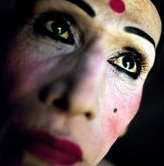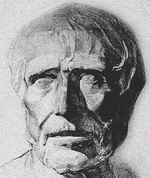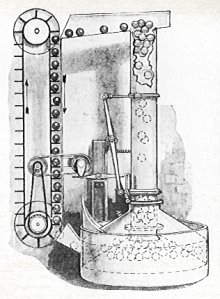 Distintas visiones sobre los Hijras de India y Paquistán:
Distintas visiones sobre los Hijras de India y Paquistán:The Hijras -men who dress and act like women- have been a presence in India for generations. Within South Asian society they maintain a third-gender role that has become institutionalized through tradition.
Hijras are often defined as eunuchs (castrated males) and acknowledged both in Hindu and Muslim cultures. Numerous references to eunuchs in the royal courts of India's Muslim rulers are cited as the Hijras' legacy. The fact that many don't consider themselves true Hijras until they have undergone the "emasculation operation" links them to this tradition, as do elements of Islamic practice that they observe, such as burying rather than cremating their dead.
Dual-gender figures in Hinduism provide other sources of identification in a religious context. The deity Shiva sometimes assumes the form of a woman; Arjuna in the Mahabharata epic lived as a eunuch during his exile. Both Hindu and Muslim Hijras are devotees of the mother goddess Bahuchara Mata; her temple in the state of Gujarat is one of their cultural centers.
Hijras refer to themselves using feminine pronouns and expect others to do so. They typically live together in the traditional commune arrangement of five or more "chelas" (disciples), supervised by a "guru." When a new chela is accepted into a Hijra household, she assumes not only the guru's surname but also membership in the guru's "house," one of seven fictive lineages that confer a sense of kinship and identity, each house having its own history and rules of behavior. She receives training in singing, dancing, and other activities to enable her to earn a livelihood.
Chelas are expected to turn their earnings over to the guru, who manages the funds for household upkeep. Gurus are expected to meet chelas' needs for food, clothing, and pocket allowance. Sources of livelihood include performing at marriage and birth celebrations, begging for alms, and prostitution.[link]
(Hijras) are for the most part kidnapped and forcibly castrated without their consent. This takes place in crude surgeries that kill a large percentage of those who undergo them. Hijra gangs target good-looking or effeminate teenagers or youth. Once they are castrated and brainwashed, they become part of and help propagate the (quite well-organized) hijra gangs. They have very few options at this point anyway, since not even their own families would want them back.
'Culturally accepted' - hardly. Hijras are treated with revulsion and disgust. They beg for money, but people only pay them to make the embarrassing creatures go away. The only exception to this is at weddings, where their presence is sought as being conducive to good luck. [link]
Another way of stigmatization stemming from colonial times is the ideas that "hijras kidnap children and force them to be castrated and become hijra". This is a parallel to the western legend that "transgenders could have a bad influence on our children". The Indian police has investigated acclaimed cases of "hijras kidnapping children" and has found none of them to be true. In fact, many mukhannathun in India and Pakistan care for children that have been left alone by their families with much love. (...)
Today hijras are very active in local politics. Especially in India, but also in Pakistan.
And, besides having been stigmatized during colonial times, many have an impressive amount of voters. A new slogan arose: "There is one solution to useless politicians, give the mandate to eunuchs." (...)
In hindu-folk-lore there is an old legend according to which "in the end of time there will be an age in which the hijras will rule", because of a blessing from God. Many hijras believe this time has come! [link]
 "The people have checked out the gentleman politicians, they have tried out the lady politicians, but all of them have failed them," said Mausi, 28. "Now, they want to try us." [link]
"The people have checked out the gentleman politicians, they have tried out the lady politicians, but all of them have failed them," said Mausi, 28. "Now, they want to try us." [link]The change is most dramatic in the male domain of politics, where Ms. Nehru and other eunuchs are proving to be a positive influence. In Hissar's city hall, local officials, all men, praise Ms. Nehru; one suggests eunuchs are the perfect antidote to India's political corruption and nepotism. "Shobha doesn't have any self-interests, any children or family," says V.P. Sangwan, city council secretary. [link]
If a child is born with any deformity of the genitals they are destined to join the hijras, whether they want to or not. The hijras will wait until the child is twelve or thirteen and then gather outside the house demanding the child as theirs. Even if the parents do not want to part with the child, they ultimately do so.
It is a risky business being a small boy living on the streets in any part of the world, but especially so in India, as there is the added risk of being transformed into a eunuch. The eunuchs gain the child's trust by providing food, shelter and friendship. [link]
The style of begging is very aggressive. In groups of three or four they confront individuals, clapping and making gestures with their fingers. Give them money and they will bless you and your family and pray for increased libido for you and for male heirs for your family. Refusal is followed by abuse, and obscene gestures, and some of them will lift their "petticoats", exposing their genitals and cursing.
(...)
As we gaind the confidence of the elders in the Hijra community, some broke down and said they were contemplating suicide because they did not want to go on living in this way. We learned that well-organised gangs kidnap children in poor areas of India or buy them from starving parents for as little as 30 rupees. The boys are then brought to the cities, castrated, and set up as beggars, who will be money-making machines for up to 40 years. These Mafia-type kidnap gangs thus exploit the religious sentiments and collective psyche of the Hindu community. They provide protection and living quarters for the Hijras, who in turn pass on a percentage of their earnings to the gang in charge of their area. [link]
"If, in our society, a defective calf is born, such calves are donated to a temple," a kindly and helpful police detective in the city of Hyderabad tells Ms. Jaffrey. "Similarly, if an impotent boy is born, or a disabled type, such boys were donated or given to the eunuch societies." [link]
Credit card companies have started sending eunuchs to recover money from delinquent customers. The recovery rate is high; unlike with musclemen who use the power of fear, which can be dealt with, eunuchs use the power of shame and embarrassment, which is much more difficult to handle. Imaging ten hijras standing outside your house, clapping and singing and drawing attention to you and your problems. Eunuchs have also been used as tools to get back at enemies. If you don't like somebody, send eunuchs across to embarrass them. [link]
[link] [link] [link] [link] [link] [link] [link] [link] [link] [link]





 Máquinas de presunto Movimiento Perpetuo
Máquinas de presunto Movimiento Perpetuo

